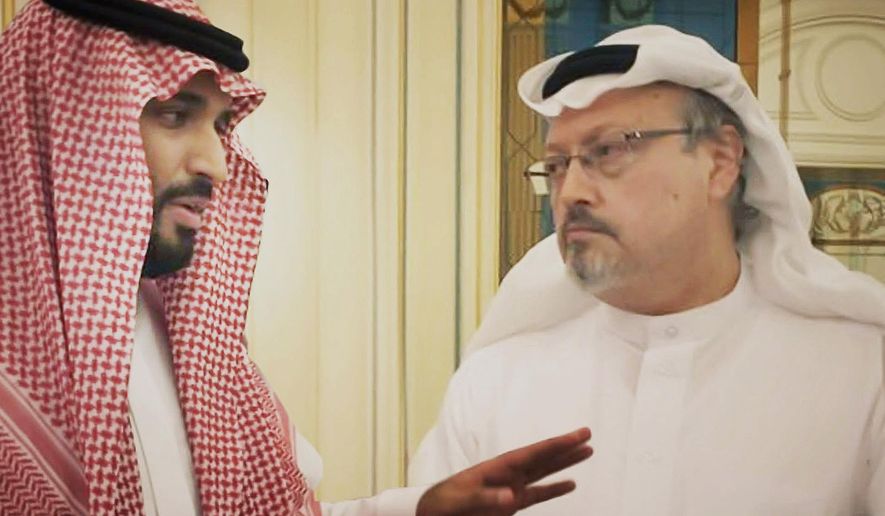President Joseph Biden’s decision not to directly sanction Crown Prince Mohammed bin Salman in the murder of dissident journalist Jamal Khashoggi is raising old yet fundamental questions about the aims of U.S. foreign policy.
What is more important, human rights or oil and geopolitical alliances? What should take precedence, morality or realpolitik? Can the U.S. really claim to support democracy and freedom while also backing dictators and kings?
Since Franklin Delano Roosevelt became the first president to meet a Saudi king in 1945, such questions have hung over the relationship between the U.S. and one of its most important partners in the Middle East.
“The United States has to deal with countries around the world, and it usually has to deal with these countries as we find them,” said Philip Zelikow, a University of Virginia historian and expert on international diplomacy, in an interview for the latest episode of History As It Happens podcast.
“You have to figure how to conduct foreign relations with a country in a situation where you think its leader or members of the leadership have done appalling things,” said Zelikow, who has special insights into the U.S.-Saudi relationship after serving as executive director of the 9/11 Commission.
Before Khashoggi’s grisly death, the marriage was becoming strained by the global outrage over the humanitarian catastrophe in Yemen, largely caused by the yearslong Saudi offensive backed by both the Obama and Trump administrations.
Saudia Arabia has used U.S. munitions in its campaign against Iran-backed Houthi rebels, who took over Yemen’s capital in 2014. The U.N. estimates more than 230,000 Yemenis have died from direct and indirect causes, such as malnutrition and starvation.
In February, Mr. Biden announced the U.S. would cease support for Saudi offensive operations in Yemen, including the sale of precision-guided weapons, and the White House announced it would recalibrate the bilateral relationship. But human rights activists are criticizing Mr. Biden for declining to punish Saudi Arabian Crown Prince Mohammed bin Salman after the release of a U.S. intelligence report that determined he personally approved Khashoggi’s murder and dismemberment.
When he was running for president, candidate Biden vowed he would come down hard on the Saudi leadership, even calling the kingdom a pariah for Khashoggi’s death in one of the Democratic primary debates. Now that he is in power, the new president is defending his decision to waive punishing bin Salman in order to preserve the broader relationship with an important ally against Iranian influence and a major player in the world oil market.
“The global oil market is very important even if the United States itself doesn’t rely on Saudi oil or the global oil market as much. It still relies on it a lot, and a lot of other countries in the world are very affected by it,” said Zelikow, who said the U.S. may need Saudi cooperation on an array of issues, including resolving tensions between Israel and its neighbors.
If Zelikow, whose diplomatic acumen was honed by serving in five different presidential administrations, sounds like a cold-hearted subscriber to realpolitik (which is defined as a system of politics or principles based on practical rather than moral or ideological considerations), he contends morality has, does, and will always play a part in American foreign policy.
“If you know [foreign leaders] have done terrible things, don’t hide it. The first service you can perform is making what you know transparent and then allowing the world to at least assess and understand who you are dealing with,” Zelikow said.
“It’s a very serious matter, what the Saudis did. I think it is perfectly appropriate to look very hard at all sorts of options, including breaking off diplomatic relations and then make a judgment call about what we think is appropriate under the circumstances.”
For more of Philip Zelikow’s thoughts on the balance between human rights and pragmatic politics in international relations, listen to this episode of History As It Happens.




